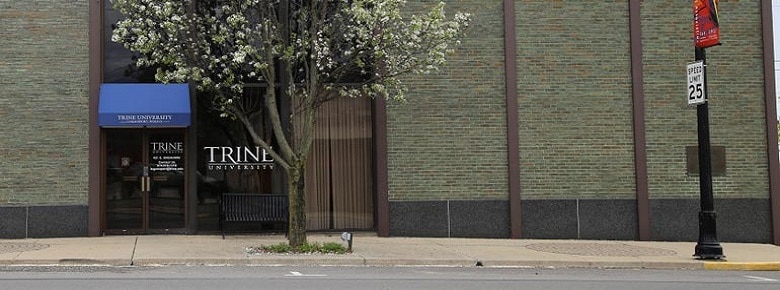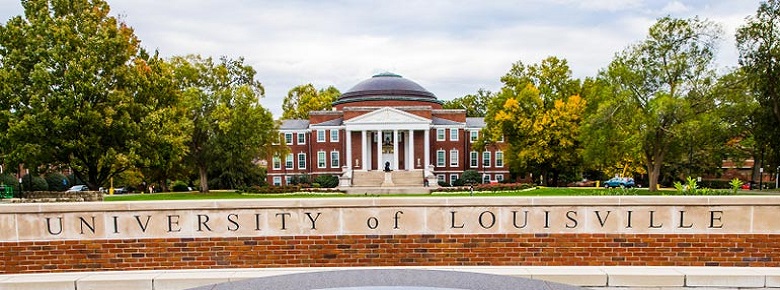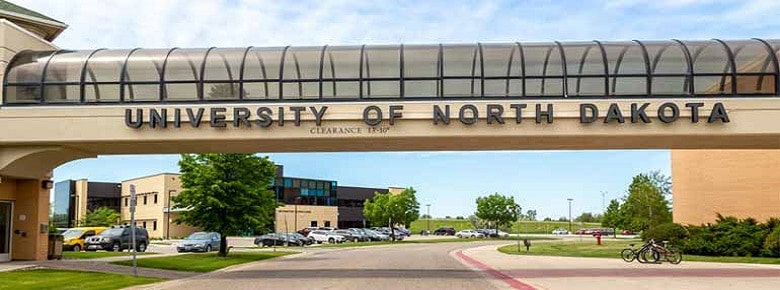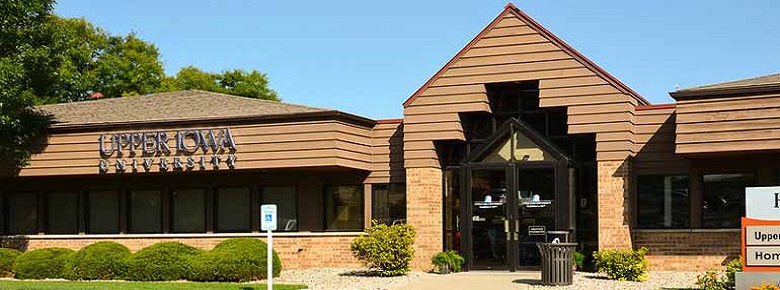If you’re interested in exploring the nuance of verbal and nonverbal communication and honing advanced interpersonal skills, then an online communications degree may be a good fit for you.

With an online communications degree, you may be prepared for a number of rewarding career opportunities in the media and communication occupations. The need for communication specialists spans across virtually all sectors of the economy.
Editorial Listing ShortCode:
Positions in the field of communications boast higher than average annual salaries. These positions may also provide promising conditions for career advancement, from entry-level positions into management or leadership positions.
Online Communications Degrees
In addition to the general bachelor’s degree in communication, there are a number of different degree options you can choose to pursue when looking to obtain a communication degree online. The degree that’s right for you will depend on your interests and overall career goals.
Select the program that most interests you to jump to that section of the guide:
Each path may come with slightly different course offerings, learning outcomes, and career trajectories. Some degree options include a bachelor’s in communications online, a bachelor’s in media communications online, or a bachelor’s in visual communications online.
Bachelors in Communications Online

An online bachelor’s degree in communication offers coursework surrounding general communication theories. These theories include communication methods, interpersonal communication, and oral communication skills or public speaking.
The core curriculum offered in a bachelor’s in communications online program tends to be more general in nature, focusing on the high-level theories related to the transmission of information from one person to the next.
In some online communications programs, you may be able to take a few specific courses, though, to complement the core curriculum. These may include introductory courses in relation to leadership, organizational change, conflict resolution, crisis management, culture and globalization, technical writing, written communication skills, or social media.
Editorial Listing ShortCode:
With an online degree in communications, you may be well suited to pursue a number of different career options in the media and communication occupations. Common communication careers include event planner, fundraiser, fund development manager, public relations specialist, marketing assistant, public speaking, communications specialist, marketing and advertising manager, and editor.
Due to the generalized nature of an online communications degree, you may also be able to obtain positions in media, such as broadcasting, journalism, or filmmaking.
Bachelors in Media Communications Online

An online bachelor’s in media communications will allow you to study different forms of media as well as best practices for using media as a means of communication.
Different types of media may include radio, television, social media, print, and online. Coursework in this degree program may cover types of communication technologies, ethics in media and marketing, marketing communications, writing styles for broadcast and journalism, and social media communication strategies.
Editorial Listing ShortCode:
You may also be required to complete courses that cover how communication skills—such as interview skills and broadcast communication techniques—are used in media. With an online media communications degree, such as a bachelors or a masters in communication online, you may be specially qualified to pursue a career in journalism, broadcasting, filmmaking, social media management, marketing, or writing.
Positions could include news anchor, news reporter, news correspondent, radio DJ, filmmaker, or social media manager. Other paths may include marketing specialist, public relations specialist, or marketing and public relations manager.
Bachelors in Visual Communications Online

An online bachelor’s in visual communications is generally focused on teaching how to use visual assets and visual storytelling to communicate or convey information to an audience.
Communication courses may have a more artistic focus in this degree program, but you may also study industry software used to create publications, illustrations, and designs. Communication careers stemming from a degree in this concentration are generally more creative and artistic in nature, using visual mediums to communicate information to an audience.
As a visual communication specialist, you may play an important role in the development of brand material for businesses. Your role may include developing content for social media, creating office presentations, developing print materials and publications, or designing websites and website graphics.
Editorial Listing ShortCode:
You may also create infographics and other visual graphic content to communicate an idea or concept to your intended audience.
With a visual communications degree, you may be poised for positions as a graphic designer, presentation designer, content creator, illustrator, photographer, filmmaker, or website designer. Other opportunities may also exist in marketing and advertising.
Communications Careers & Salaries

While there are a number of positions available to you with a BA in communication degree, some common paths include marketing and advertising, public relations, event management, and fundraising.
Positions in marketing and advertising may require you to work within a team to brainstorm ideas for promotional campaigns within a business.
This could include discussions around how to advertise certain products and what will be shared through various media avenues. You may also analyze market trends, evaluate the demand for products or services, and define product pricing strategies.
In public relations positions, you may act as the primary business contact for media and communicate directly with various outlets. You may also oversee the issuing of press releases, manage communication from the business to the public, maintain a positive reputation for the business, and evaluate social media strategy for risks to the organization.
According to the Bureau of Labor Statistics, there are a number of rewarding career paths you may pursue with a communications online degree program.
| Careers | Annual Median Salaries |
| Marketing Managers | $142,170 |
| Advertising and Promotions Managers | $133,460 |
| Public Relations and Fundraising Managers | $118,430 |
| Technical Writers | $74,650 |
| Writers and Authors | $67,120 |
| Editors | $63,400 |
| Media and Communication Specialists | $62,810 |
| Fundraisers | $59,610 |
| Meeting, Convention, and Event Planners | $51,560 |
| Reporters, Correspondents, and Broadcast News Analysts | $49,300 |
A number of positions in the field of communications are predicted to experience growth over the next decade. Some of these positions include advertising, promotions, and marketing managers (6%), public relations specialists (7%), event planners (8%), public relations managers (9%), fundraising managers (9%), technical writing (12%), and fundraisers (14%).
In event management positions, you may coordinate event details with venues and other hired vendors, from caterers and transportation service providers to speakers and entertainers.
These event management duties may extend to oversight of budgets, location details, timelines, food orders, and transportation for social and professional events. Such events may include conferences, corporate meetings, weddings, fundraisers, galas, and banquets, among others.
Editorial Listing ShortCode:
In a fundraising position, you may solicit donations from businesses and individuals and develop marketing materials to promote awareness of a cause. You may also raise additional funds and plan fundraising campaigns.
Other responsibilities may include managing donation records and ensuring that fundraising initiatives and financial reporting abide by legal requirements.
Communications Curriculum & Courses

When pursuing a communications degree online, you may be required to complete a number of communication courses covering the transmission or conveyance of information among parties in both private and public settings.
- Advanced Public Speaking: This course covers various oral communication strategies for public speaking and helps you develop presentation skills through practical application.
- Business Communication: You’ll examine best practices for optimal communication in business settings, including oral presentations, small group discussions, and written communication.
- Interpersonal Communication: This course covers how communication plays a fundamental role in the development of positive and healthy relationships in both work and personal life.
- Communication Theory: You’ll study various theories and perspectives related to the fundamental methods or practices of communication.
- Leadership and Communication: You’ll review communication skills for organizational leadership and how to get the most out of communication with employees, co-workers, and key stakeholders.
- Communication in Social Media: This course examines communication from a social media strategy and technology lens, including how the use of social media technologies impact the way people communicate with one another.
- Communication for Managers: You’ll learn strategies to communicate effectively as a manager, including organizational communication, team communication, and conflict management.
- Communication in a Crisis: You’ll discover best practices for crisis communication, including developing a crisis response plan and managing the situation.
- Nonverbal Communication: This course examines methods including body language, eye contact, tone, pitch, and facial expressions.
- Conflict Resolution: This course explores various strategies to manage conflict and work towards productive resolutions by using effective communication.
Online communication degree programs may allow you to balance the core communication curriculum in online learning with more specialized course offerings in communication technologies, visual communication, business communication, political science, and more.
Admissions Requirements

Admission requirements for an online communications degree may differ from school to school. When you’re looking to enroll in online bachelor’s programs, though, you may want to be aware of the following:
- Online application: Some schools may require you to complete an online application to be considered for enrollment into online bachelor’s programs in communications.
- High school transcripts: In many cases, communication degree programs will request your high school transcripts as part of your application to the program.
- SAT or ACT scores (if required): While not always needed, some schools and programs may request your SAT or ACT scores for admission requirements into an online communications degree program.
- College transcripts (if applicable): If you’ve previously attended another postsecondary school or program, you may be required to submit your transcripts from completed courses.
International students may be required to meet additional admission requirements, such as English proficiency testing, before being admitted to either on-campus or online communications programs.
Accreditation

Regional accreditation validates that a program’s curriculum meets a predetermined level of academic quality.
The accreditation status of a program may impact your ability to transfer credits to another school and may also factor into hiring manager’s decision making. The accreditation status of a program may also impact your ability to obtain financial aid. It’s worth taking the time to ensure that your potential school is an accredited institution before you apply to a program.
Editorial Listing ShortCode:
You can find out the accreditation status of programs you’re interested in by visiting the US Department of Education‘s website.
Financial Aid and Scholarships

While pursuing a BA in communication degree online comes with some cost, there are a number of financial aid options available that may help reduce the financial burden.
Federal and state aid programs are managed by the federal and state governments, respectively. If you qualify, each of these aid options may offer grants or loans to help you fund your education either on campus or through online learning. Generally, loans are required to be repaid while grants are not.
Scholarships are another option that you may be eligible to receive. These payments are offered by various nonprofit and private organizations and, like grants, generally do not require repayment.
You can apply for aid online through the US Department of Education using the Free Application for Federal Student Aid (FAFSA).
What Is a Communications Degree?

A communications degree is an academic program where you may learn various principles and strategies of communication. You may learn verbal or oral communication skills as well as nonverbal communication ones.
When studying nonverbal methods, you may look at communicating through body language, facial expressions, voice tone and pitch, and eye contact. You may be able to earn a communications degree as either a bachelor of business administration, bachelor of arts, or bachelor of science, with varying concentrations or majors.
Communication degree majors or concentrations will vary from school to school. Communication majors may include journalism, marketing, visual communications, media, public relations, business, or politics.
What Can You Do with a Communications Degree?

There are a number of rewarding career paths you can follow with a BA in communication. Job positions for communication majors may be found in virtually all industries of the economy, including private, public, and nonprofit organizations.
With your online communications degree, you may be qualified for careers such as news reporter, marketing specialist, public relations specialist, media and communications specialist, or advertising manager. Other career options include event planner, fundraiser, writer, or editor.
How Long Does It Take to Get a Communications Degree Online?

Completing your degree in communications often takes 4 years if you follow the traditional, 16 week semester schedule with a full course load. Some programs offer a schedule with 8 week semesters with continuous enrollment. If you’re a full-time student, this may allow you to obtain your degree in less time.
Alternatively, some programs may allow you to enroll on a part-time basis. This path may take you longer to complete your degree, but a part-time school schedule can help to balance other life responsibilities, such as family and work.
If this is the case, you may be interested in an associates degree in communications as this degree typically only takes two years to complete and can give you a great start in this field.
What Is the Difference Between Marketing vs. Communications?

Communications is focused on general verbal and nonverbal interaction and the relay of information from one party to the next.
This may include one-on-one communication as well as communication among a group, either in a private, personal setting, a public setting, or a workplace. Marketing, on the other hand, uses communication strategies and methods for the specific purpose of selling a product or service to a consumer.
Editorial Listing ShortCode:
Unlike general communication, marketing requires you to employ communication research methods and critical thinking skills to understand your target markets, develop and maintain a business’s brand, devise value propositions, and analyze market trends.
What Is the Difference Between Communications vs. Public Relations?

Public relations is a course of study that focuses on managing the image of an organization or individual. It also emphasizes the maintenance of positive relationships and reputations.
Communications focuses on the general transmission of information from one person to another. Careers in the field of public relations may require you to communicate directly with media outlets. You may act as the primary business contact for inquiries from television, radio, print, and online news sources.
This may also include acting as the primary contact for media during public relations crises. You may be responsible for oversight of communication material leaving the organization, including press releases, speeches, presentations, and more.
What Jobs Can You Get with a Communications Degree?

Communication careers exist across almost all industries of the economy. Many organizations require the support of communication experts, and employers can range across the public, private, and nonprofit sectors.
With a bachelor’s in communication, you may be qualified for positions in media, marketing and advertising, public relations, or fundraising and event management. Media careers may include news reporter, news correspondent, news broadcaster, writer, or editor.
Marketing and advertising positions could include marketing specialist, advertising manager, or advertising manager. Other positions may include public relations specialist, event coordinator, development coordinator, or grant writer.
What Can You Do with a Mass Communications Degree?

Mass communications degree curriculum focuses on communicating through mass mediums, such as radio, television, and the internet. Communication majors may require you to study topics like media studies, photojournalism, news writing, media and globalization, and research in mass media.
With a mass communications degree, you may be able to obtain positions in journalism, television broadcasting, radio disk jockeying, and media consulting. You may also pursue writing, editing, and public relations.
Is a Communications Degree Worth It?

Yes, a bachelor’s degree in communication is worth it for many professionals. According to the Bureau of Labor Statistics, media and communication jobs are set to grow at 4% over the next 10 years, as fast as the average job growth for all occupations.
Common communications careers in this field include media and communications specialist, public relations specialist or manager, event planner, fund development coordinator, or marketing and advertising manager.
Universities Offering Online Bachelors in Communications Degree Programs
Methodology: The following school list is in alphabetical order. To be included, a college or university must be regionally accredited and offer degree programs online or in a hybrid format.

Appalachian State University’s communication studies bachelors program is a junior and senior level program that requires 51 to 54 additional credits past the associates degree level. Courses are offered in 8 week sessions, and the entire degree can usually be completed in 6 semesters by full-time students taking 12 credits each semester.
Appalachian State University is accredited by the Commission on Colleges of the Southern Association of Colleges and Schools.

The Bachelor of Science in Communication program at Arizona State University requires students to take 40 courses.
These courses should provide solid foundations in analysis, critical thinking skills, and communication. Other course topics cover communication research methods, communication and gender studies, persuasion and social influence, public speaking, and leadership in group communication.
Arizona State University is accredited by the Higher Learning Commission of the North Central Association of Schools and Colleges.

Students in Arkansas State University’s Bachelor of Arts in Communication Studies program will learn about all the ways in which organizations and individuals share, interpret, and understand information.
Courses featuring both communication theory and experiential learning are important to the curriculum. The school also allows a few dual degree pairings.
Arkansas State University is accredited by The Higher Learning Commission of the North Central Association of Colleges and Schools.

A communication studies bachelors degree from Bellevue University lends itself to careers in many different fields and industries.
The school offers concentrations in mass media or organizational and strategic communication. For both concentrations, core courses are the same and include oral communication, digital age communication, and critical thinking and communication.
Bellevue University is accredited by the Higher Learning Commission.

California Baptist University’s Bachelor of Arts in Strategic Communication program features a curriculum designed specifically to help communications students learn about all aspects of the field, such as the historical, global, social, cultural, and political aspects.
Graduates should exemplify the academic integrity, ethics, and community awareness that come with developing a Christian worldview.
California Baptist University is accredited by the Western Association of Schools and Colleges Senior College and University Commission.

Colorado Christian University’s communications bachelors program puts a lot of focus on persuasive communication, cross-cultural communication, and communication law.
Graduates of the program should be well equipped to work in a variety of fields, including journalism, radio, and other forms of media, business, marketing and advertising, and government and politics.
Colorado Christian University is accredited by The Higher Learning Commission.

Colorado State University’s Bachelor of Arts in Journalism and Media Communication boasts an expert faculty of media and communications professionals with years of experience.
The curriculum is comprehensive and covers topics like web design, photo and video production, photo and video editing, advertising, public relations, marketing, magazine and news writing, and online storytelling.
Colorado State is accredited by the Higher Learning Commission.

Students enrolled in Columbus State University’s Bachelors in Communications program can select from four concentrations: Public Relations, Film Production, Integrated Media, or Communication Studies.
Electives are different for each communication major based on his chosen concentration, but core classes are largely the same for everyone. Various forms of financial aid are available for prospective students.
Columbus State University is accredited by the Southern Association of Colleges and Schools Commission on Colleges.

The Bachelor of Applied Science in Communication program at Dallas Baptist University requires 120 credit hours to complete. Of those 120 credits, 48 must be upper-level credits.
Along with several general education courses, the curriculum also includes courses such as social media strategies, basic digital design, and communication styles.
Dallas Baptist University is accredited by the Commission on Colleges of the Southern Association of Colleges and Schools.

Drexel University’s Bachelor’s in Communication degree is perfect for students hoping to pursue careers as journalists, copywriters, brand managers, public relations specialists, political campaign managers, communication specialists, or other similar job titles.
They can take the general concentration or choose the Public Relations concentration. The program is available 100% online.
Drexel University is accredited by the Middle States Commission on Higher Education.

There are four available concentrations in the Bachelor of Arts in Communications program at Eastern Illinois University. The Communication in Organizations concentration is the only one that can be earned online.
It includes courses in intercultural communication, workplace relationships, organizational communication, conflict management, interpersonal communication, and communication and professional development.
Eastern Illinois University is accredited by the Higher Learning Commission of the North Central Association of College and Schools.

Embry-Riddle Aeronautical University’s Bachelor of Science in Communication program features a heavy STEM component and teaches students to integrate both technology and science into their communications fundamentals in order to solve real-world communication issues.
The curriculum features several courses that aim to improve students’ creative thinking, writing, and technology skills.
Embry-Riddle is accredited by the Southern Association of Colleges and Schools Commission on Colleges.

Florida International University offers an online Bachelor of Arts in Communication Arts program that provides communications students with solid foundations in the art of persuasion, group dynamics, business communication, and interpersonal communication.
Much attention is also given to team building exercises, improving decision making skills, and understanding conflict and crisis management.
Florida International University is accredited by the Southern Association of Colleges and Schools Commission on Colleges.

Students in King University’s Bachelor of Science in Communication program should gain the understanding and skills needed to effectively present crucial information to others in ways they can understand.
Courses are geared towards improving students’ critical thinking, presentation, and writing skills. Topics covered include persuasive arguments, leadership, and ethical communication.
King University is accredited by the Southern Association of Colleges and Schools Commission on Colleges.

Lakeland University seeks to teach students to “communicate to the ever-changing world” with its communications bachelors program.
It’s an innovative program that focuses heavily on new communication trends, such as social media, digital communication apps, and other emerging technologies. It’s also a good foundational program for students interested in graduate school.
Lakeland University is accredited by the Higher Learning Commission.

The Bachelor of Science in Strategic Communication program at Liberty University is a rigorous 120 credit program that’s entirely online.
It teaches students to develop communication research methods and to implement innovative and effective communication initiatives within organizations. Students can transfer up to 75% of the required credits from a previously attended university.
Liberty University is accredited by the Southern Association of Colleges and Schools Commission on Colleges.

Although Loyola University – New Orleans has a few different communications programs, the Bachelor of Arts in Mass Communication is the only communication bachelors degree the school offers online. Communications students must take 40 credits of major-specific required courses, 39 credits of general core courses, and 41 credits of general elective courses.
Loyola University New Orleans is accredited by the Southern Association of Colleges and Schools Commission on Colleges.

Within Mississippi College’s communications bachelors program, there are six specific concentrations and an optional theater minor.
These concentrations include interpersonal and public communication, mass media, journalism, sports media, public relations, and political communication. Coursework is a mixture of independent work, lectures, and hands-on experience learning to use Adobe Creative Cloud.
Mississippi College is accredited by the Southern Association of Colleges and Schools Commission on Colleges.

Missouri State University’s Bachelor of Science in Communication Studies program is a good choice for students hoping to go into fundraising, human resources, arts management, nonprofit administration, or journalism.
It also helps students prepare for continuing education in graduate school. The degree is non-comprehensive and requires a minor to graduate.
Missouri State University is accredited by the Higher Learning Commission.

National University offers something a little different in terms of communications degrees.
Their Bachelor of Arts in Integrated Marketing Communications program is geared more towards students who are interested in communications as a means of succeeding in the marketing field. Courses include sales promotion, direct marketing, public relations, and advertising.
National University is accredited by the WASC Senior College and University Commission.

The Bachelor of Science in Digital Communication and Media program from Northeastern University prepares students for careers in digital marketing via social media, websites, email, mobile devices, and search engines.
The curriculum includes a wide range of courses, including public relations, research methods, assessment, channel development, content creation, and writing.
Northeastern University is accredited by the New England Commission of Higher Education.

Northern Arizona University’s communication studies bachelors program offers a general communications emphasis or an emphasis in organizational communication.
The program includes a variety of courses in communication studies, English and writing, and general electives. Students can also choose to select a minor with this degree to further pursue their interests.
Northern Arizona is accredited by the Higher Learning Commission.

The online Bachelor of Science in Communication program from Ohio University provides a virtual classroom experience for potential communications professionals who need accommodating college schedules.
Courses are flexible and customizable, and students can work at their own paces to complete the work. Transfer credits are also accepted, and financial aid is available for students who qualify.
Ohio University is accredited by the Higher Learning Commission.

Students in Regent University’s Bachelor of Arts in Communication Studies program can select the Journalism concentration and earn their degrees through online programs.
Program graduates should be capable of designing strategies to research, write, and distribute news, getting their work published in professional media outlets, and translating messages between different media types.
Regent University is accredited by the Southern Association of Colleges and Schools Commission on Colleges.

Regis University’s Bachelor of Arts in Communication program is an accelerated program that is great for students looking to earn their degrees quickly. Courses are delivered in either 5 week or 8 week terms. There are two concentrations available, Leadership and Conflict Management, and the entire program requires 120 credits for completion.
Regis University is accredited by the Higher Learning Commission.

San Diego Christian College’s communication bachelors program helps students perfect their writing and speaking skills and teaches them to speak with purpose in order to entertain, persuade, educate, or inform.
All coursework features a spiritual undertone, and graduates should be able to use this to promote civic engagement and strengthen connections.
San Diego Christian College is accredited by the WASC Senior Commission of the Western Association of Schools and Colleges.

The Bachelor of Arts in Digital Media and Professional Communication program at Texas Tech University equips students with the job skills they need to become marketable employees in the global market. Students gain both applied and soft skills and should be exceptional communicators, flexible learners, and ethical problem solvers.
Texas Tech University is accredited by the Southern Association of Colleges and Schools Commission on Colleges.

Students enrolled in Trine University’s Bachelor’s in Communication program have the option of choosing between four concentrations—Information Systems, Healthcare Administration, Criminal Justice, or Organizational Leadership—or choosing the strategic focus concentration.
This concentration allows communications students to design their own curricula relating to their own specific focus areas.
Trine University is accredited by the Higher Learning Commission.

University of Colorado – Boulder’s communication bachelors program combines hands-on experience, theoretical knowledge, and collaborative projects into one comprehensive curriculum.
The communication major will take courses that help improve and perfect critical thinking, writing, analysis, teamwork, relationship-building, and speaking skills. They also explore the political, global, cultural, and social aspects of communication.
The University of Colorado – Boulder is accredited by the Higher Learning Commission.

University of Central Florida’s Bachelor of Arts in Communication and Conflict program teaches students to listen to, understand, and resolve conflicts and breaches in communication at all levels in many fields and industries.
This is a good program for students hoping to become family law facilitators, counselors, arbitrators, or HR administrators.
The University of Central Florida is accredited by the Southern Association of Colleges and Schools Commission on Colleges.

The Bachelor of Arts in Communication Arts program at University of Denver is available either entirely online or in hybrid format. There are 11 general core courses, 10 major-specific core communication courses, and a variety of elective courses. Some of the courses include media and society, effective presentations, and creating dialogue.
The University of Denver is accredited by the Higher Learning Commission.

Because it helps improve students’ communication and analytical skills, the Bachelor of Science in Telecommunication program from University of Florida is a good option for students planning on continuing on to law or graduate school after earning their degrees. It can also lead to careers in politics, media, or healthcare.
The University of Florida is accredited by the Southern Association of Colleges and Schools Commission on Colleges.

University of Louisville offers degrees in both Bachelor of Arts and Bachelor of Science in Communications. The degrees are offered entirely via online programs, and their curricula are very flexible. Students will meet with communication major advisors and get in-depth assistance on creating their degree plans. The programs can be completed in 2 years.
The University of Louisville is accredited by the Southern Association of Colleges and Schools Commission on Colleges.

The Bachelor of Science in Communication program at the University of Minnesota – Crookston is a fully online degree program that requires 120 credits for completion. Heavy focus is placed on communication theory and practice and on improving students’ presentation, interpersonal, and writing skills. There are also three different concentrations available.
U of M Crookston is accredited by the Higher Learning Commission.

Students enrolled in the Bachelor of Arts in Communication program at the University of North Dakota will perfect their skills in the fields of analytics, written and oral communications, and collaboration.
Interested students who successfully complete the bachelors program can take advantage of the school’s PhD in Communication program as well.
The University of North Dakota is accredited by the Higher Learning Commission of the North Central Association of Colleges and Schools.

University of Texas – Permian Basin offers a Bachelor of Arts program that’s entirely online. The program requires 120 total credits to complete, but transfer students can bring in up to 90 of the required credits from previously attended universities. Notable courses include theories of communication, rhetoric in Western thought, and media writing.
The University of Texas Permian Basin is accredited by the Commission on Colleges of the Southern Association of Colleges and Schools.

University of Wisconsin – Superior offers both Bachelor of Arts and Bachelor of Science in Communication programs.
Students in either program should take classes related to understanding persuasion and how it’s used in the media, communicating with and across cultures, understanding relationships with co-workers, family, and friends, and perfecting conflict management skills.
The University of Wisconsin-Superior is accredited by the Higher Learning Commission.

The communications bachelors program at Upper Iowa University helps prospective students learn to plan, organize, evaluate, and think creatively and strategically.
It should also help them improve and perfect their visual communication, speaking, and writing skills. There are three concentrations in this program: mass media, communication studies, and sports communication.
Upper Iowa University is accredited by the Higher Learning Commission.

Students in Walden University’s Bachelor of Science in Communications program learn quite a bit about digital and technological communication.
They take courses that teach them how to develop marketing campaigns, create targeted social media messages and ads, speak persuasively to spur others to action, and deliver interesting and exciting presentations.
Walden is accredited by The Higher Learning Commission.

Washington State University’s Bachelor of Arts in Strategic Communication program teaches students to persuasively, creatively, and effectively communicate with target audiences as well as to build long-term relationships between two organizations or between an organization and the general public.
There is a heavy technology and digital component to many core courses.
WSU is accredited by the Northwest Commission on Colleges and Universities.
Getting Your Communications Degree Online

Whether you’re interested in earning your bachelors, masters, or PhD in Communications online, communication majors may open up opportunities in a wide variety of career paths.
Some careers include event planning, fundraising, and donor relations. After earning your online bachelor’s, you may also pursue positions in public relations, advertising, and marketing as well as journalism, news media, television, film, and social media strategies.
Careers in the field of communication boast a positive job outlook over the next several years. These jobs may offer room for growth and advancement within the profession, with the ability to move from entry-level positions into management, leadership, or self-employment.
If you’re intrigued by any of the careers available in the field of communication, you may consider exploring accredited programs for earning a communications degree through online learning.

